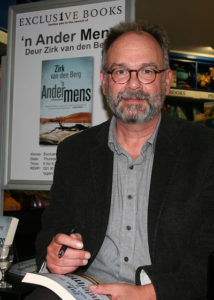Reading Massimo Carlotto’s crime novel The Goodbye Kiss, I was once again reminded how intriguing an unsympathetic main character can be in fiction.
 My own novel No-Brainer features a main character some readers find too hard to like. However, I do ascribe to the accepted truism of writing that the reader should care for the main character and preferably like them enough to root for them. I also wrote elsewhere that one of the reasons I don’t like reading books about serial killers is that I don’t want to spend time with sickos.
My own novel No-Brainer features a main character some readers find too hard to like. However, I do ascribe to the accepted truism of writing that the reader should care for the main character and preferably like them enough to root for them. I also wrote elsewhere that one of the reasons I don’t like reading books about serial killers is that I don’t want to spend time with sickos.
So why did I enjoy Carlotto’s book so much when the main character is a lying bastard, robber, serial abuser of women and commits a string of murders?
For one thing, he’s not a sicko. He commits these crimes, but unlike the serial killers I detest, he doesn’t derive particular pleasure from doing so. Although he does confess in one place to always having enjoyed murder, that is not the motivation for his actions. He is simply trying to look after number one the best way he knows how. He is callous and cruel, but not sadistic.
The way the book is written, with its incredibly fast pace, is also not indulgent. You never get the feeling that the narrator is enjoying the gore or is hoping that the reader will get kicks from descriptions of violence. The violence happens, matter of factly, and the story moves on.
Massimo Carlotto reminded me of nobody so much as Jim Thompson, whose main characters can also be morally corrupt. Both these authors write lean and mean fiction… and these words are not just chosen because they rhyme. There is a commendable, merciless quality to the writing of both these men.
I read The Goodbye Kiss without as much as a glance at the blurb. I saw the book at a second hand store, liked the look of it and decided to simply open on page one and start reading. It is only afterwards that I read the blurbs and discovered the degree to which Massimo Carlotto’s life story mirrors that of the protagonist in this book. (Presumably the author is not really a murderer, though he did spend five years in prison before his conviction on a murder charge was overturned.)
While Carlotto’s biography can be considered to lend credence to his work, I believe that’s neither here nor there. What you read in the book is the work of someone with a hard-nosed approach that is clearly not put on. (I’m so bored with narrators who pretend to be tough. Isn’t it far more compelling to read stories, especially crime stories, courageous enough to show vulnerability?)
Interestingly, I also recently read two other books where the main character didn’t entirely win my sympathy: John le Carré’s Absolute Friends and James M. Cain’s Mildred Pierce.
In Le Carré’s case, the character was a victim of larger forces and should’ve evinced more sympathy. Yet somehow he just never came alive to me, despite all the pages and all the information and everything that was done to him. A spark of life was missing. Brilliant writer though he is, I think Le Carré didn’t quite get this character to come off the page.
The title character of Mildred Pierce was more appealing, at least at first, though her actions made one care about her less as the story progressed. Still, it is a marvellous book and one I can almost not believe has been as successful as it has been. It certainly doesn’t follow the popular pattern. It’s actually an incredibly brave book.
And one cannot consider unsympathetic main characters without a nod to Nabokov, whose works feature a succession of them. In his case, the trick is that you recognise the humanity of these characters. You may not admire them, but you feel you know them and, however begrudgingly, are willing to indulge their weaknesses. And, of course, there’s that Nabokov style to make the reading a pleasure.
Which brings me back to Massimo Carlotto’s book. If the writing is good, then the book is a joy to read. As Oscar Wilde said: “There is no such thing as a moral or immoral book. Books are either well written or badly written. That is all.”

